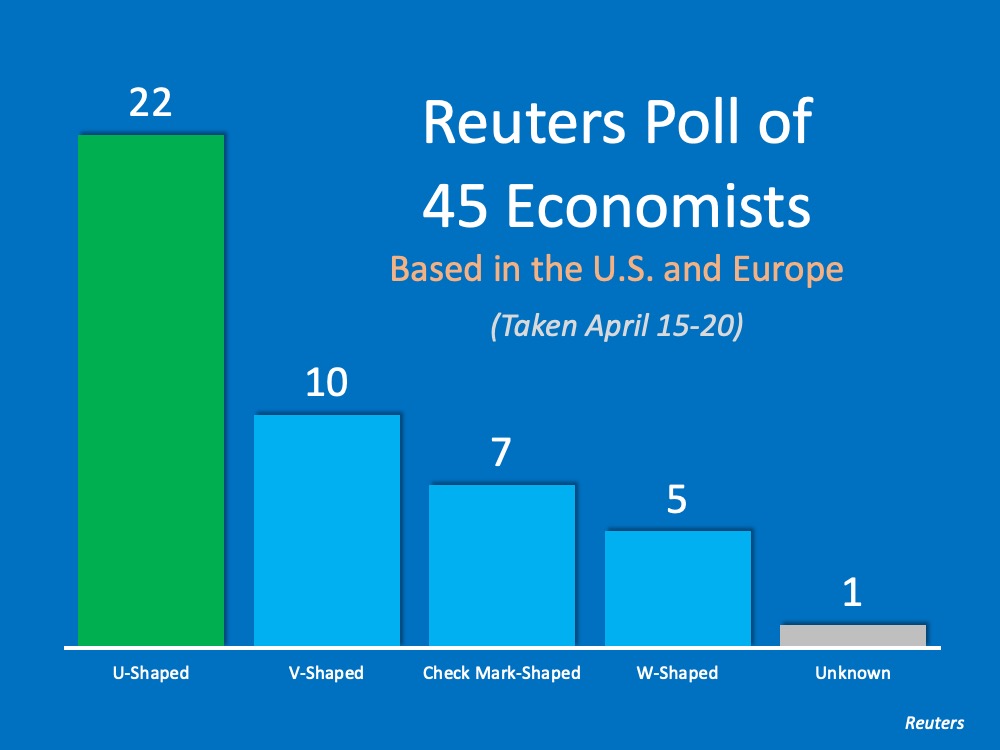
“The current situation makes it extremely difficult to project the future of the economy. “
In addition, we noted how there are some in the business community who believe we may instead be headed for a U-shaped recovery, where the return to previous levels of economic success won’t occur until the middle of next year. Yesterday, Reuters released a poll of U.S. and European economists which revealed that most surveyed are now leaning more toward a U-shaped recovery.
Here are the results of that poll:
Why the disparity in thinking among different groups of economic experts?
The current situation makes it extremely difficult to project the future of the economy. Analysts normally look at economic data and compare it to previous slowdowns to create their projections. This situation, however, is anything but normal.
Today, analysts must incorporate data from three different sciences into their recovery equation:
1. Business Science – How has the economy rebounded from similar slowdowns in the past?
2. Health Science – When will COVID-19 be under control? Will there be another flareup of the virus this fall?
3. Social Science – After businesses are fully operational, how long will it take American consumers to return to normal consumption patterns? (Ex: going to the movies, attending a sporting event, or flying).
The challenge of accurately combining the three sciences into a single projection has created uncertainty, and it has led to a wide range of opinions on the timing of the recovery.
Bottom Line
Right now, the vast majority of economists and analysts believe a full recovery will take anywhere from 6-18 months. No one truly knows the exact timetable, but it will be coming.
To view original article, visit Keeping Current Matters.
What Is Going on with Mortgage Rates?
Based on current market data, experts think inflation will be more under control and we still may see the Fed lower the Federal Funds Rate this year.
What More Listings Mean When You Sell Your House
if you’re considering whether or not to list your house, today’s limited supply is one of the biggest advantages you have right now.
Now’s a Great Time To Sell Your House
Late spring and early summer are generally considered the best times to sell a house as these are the seasons most people move and buyer demand grows.
Is a Multi-Generational Home Right for You?
Looking for the perfect multi-generational home is a bit trickier than finding a regular house. A local real estate agent can help you out.
What You Really Need To Know About Home Prices
If you’re worried about if home prices will be coming down, here’s what you need to know.
Is It Getting More Affordable To Buy a Home?
Mortgage rates are expected to come down by the end of the year, making homebuying a little more affordable.





